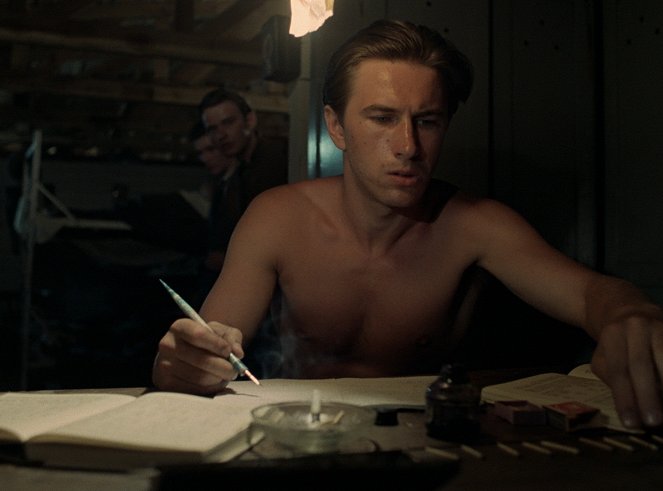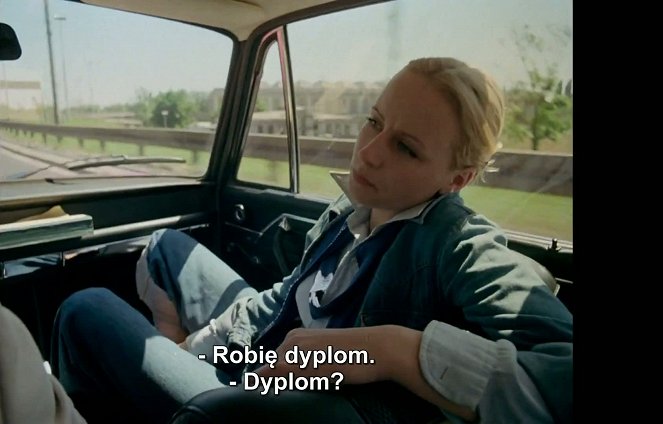Ohjaus:
Andrzej WajdaKäsikirjoitus:
Aleksander Ścibor-RylskiKuvaus:
Edward KlosinskiSävellys:
Andrzej KorzyńskiNäyttelijät:
Jerzy Radziwilowicz, Krystyna Janda, Tadeusz Łomnicki, Jacek Łomnicki, Michal Tarkowski, Piotr Cieślak, Wieslaw Wojcik, Krystyna Zachwatowicz (lisää)Juonikuvaukset(1)
It is a Citizen Kane-styled story where Wajda introduces us to a young woman in Krakow, Agnieszka, who is making her thesis film. She is looking behind the scenes at the life of a 1950s bricklayer, Birkut, who was briefly elevated to the status of a communist hero. She wants to know how his heroism was created and what became of him. She gets a hold of censored footage and interviews with the man's friends and ex-wife, and the filmmaker who made him a hero. A portrait of Birkut emerges as a man who believed in the socialist ideals, the workers revolution, and in building housing for all. However, the young filmmaker's hard-driving style and the content of her film unnerve her supervisor, who thinks it's getting too close to a political nerve. The film project is killed with the excuse she is over budget, but the young filmmaker pushes forward against all odds to finish her film. (jakelijan virallinen teksti)
(lisää)Videot (1)
Arvostelut (4)
From a formal point of view, it is a crystallized work, where Andrzej Wajda deals with the dark side of Polish history and describes the industrial production of strikers and heroes of socialist work. Content-wise, it is, of course, a film that reflects the time of its creation, namely the second half of the 70s, wherein Wajda evaluates recent history from the perspective of a reformist communist, so some motifs could have been even darker. The hero of the story, whom the viewer gets to know through archival materials, is a selfless idealist who takes excessively impractical positions, so even after the change in social climate, he does not want to benefit from his recent persecution and instead of accepting the offered position, he withdraws and is forgotten. Besides the well-constructed screenplay, one of the film's strengths is Krystyna Janda, the femme fatale of Polish cinema, who has appeared in several excellent Polish films. In Man of Marble, she creates a character that is a combination of Isabelle Huppert and Leni Riefenstahl. Overall impression: 80%. Unfortunately, the film is somewhat harmed by its drab ending, which somewhat diminishes the impact of its message.
()
It is a bit stretched, but it is conceptually so interesting that it still manages to captivate you. At first glance, it is a film about filming a movie, but on second thought, it is an exploration of the story of one person who became a major communist symbol. Every film against totalitarianism is good, and this one is also very well made.
()
I could hardly have chosen a more extravagant and progressive work for my first encounter with Wajda. Man of Marble is quite fascinating for its narrative system, which very effectively links two storylines through a series of conversations, with each developing its central characters and possessing a noticeably different stylistic treatment. The flashbacks are almost reminiscent of newsreels at times, while the present events of the 1970s could be mistaken for the formal modernism of American artists like Hal Ashby. The pace is a bit lethal in places, but thanks to the pyramid structure (interrogations of the characters leading gradually to the "marble man" himself), the story keeps unfolding towards the final twist and never ceases to captivate with its convincing depiction of the contrast between two morally different historical stages. 85%
()
As part of her thesis, a film school student puts together a depiction of the long-forgotten shock worker Mateusz Birkut. She then realises that, in the fifties, political icons were created effortlessly and, after a short period, destroyed with even smaller effort. An impressive mosaic about the personality of one man who tragically became a puppet of the regime, which is also both a fascinating testimony about the futility of rebellion against the system and also a compliment on those passionate efforts. Andrzej Wajda made a complex and daring drama, embellished by commited acting of the main protagonists as well as Andrzej Korzyński’s very eccentric music. One might wonder how such a piece could even come to existence—one more reason why it should be honoured. [LFŠ 2020]
()
Kuvagalleria (66)
Kuva © Film Polski Film Agency



Mainos